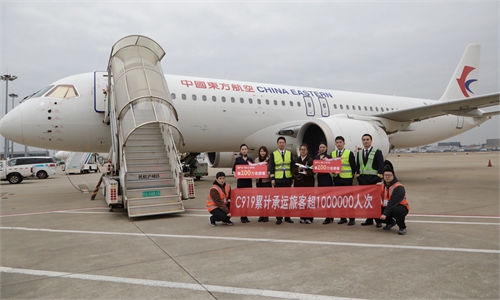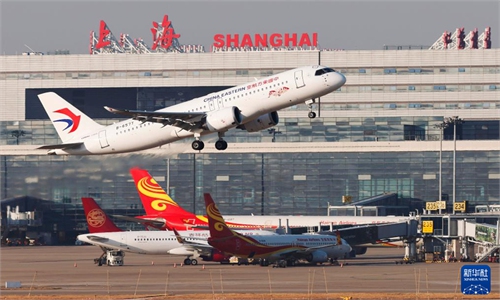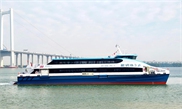Chinese mainland-HK MRF enhancements welcome first trading day
Foreign financial institutions eye raising fund scale under program

The view of Hong Kong Photo: VCG
Starting from Thursday, the cap on the value of units of a Hong Kong-registered mutual recognition fund sold in the Chinese mainland increased to 80 percent from 50 percent, and vice versa.
The change is one of several to the revised Provisions on the Administration of Recognized Hong Kong Funds by the China Securities Regulatory Commission (CSRC).
Through the program, Chinese mainland investors can invest in our Schroder Asian Asset Income Fund. Currently, the scale of the fund is about $2.7 billion, but the new northbound quota offers an opportunity to significantly expand the scale to about $10 billion, Shen Qiang, head of Wealth Business, China for Schroders, told the Global Times.
"Currently, most northbound funds under the MRF program mainly invest in equities and bonds. Along with China's continuous financial development, we aim to leverage our expertise and resources to develop and provide a more diverse range of investment options for mainland investors," Shen said.
According to the revised rules, the overseas delegation restriction is also relaxed, which now allows the delegation of investment management functions of recognized funds to overseas asset management companies within the same group.
The implementation of the new rules marks a new phase for the development of MRF between the mainland the Hong Kong, Wang Ying, head of investment and wealth solutions and wealth and personal banking at HSBC China, told the Global Times.
"The move will further deepen the connectivity of the asset management markets in the mainland and Hong Kong, expand the two-way opening-up of both capital markets, and inject new momentum to the coordinated development of both capital markets," Wang said.
Effective from July 1, 2015, the MRF program allows eligible mainland and Hong Kong funds to be distributed in each other's markets through a streamlined vetting process. Over the years, the MRF program has operated smoothly, playing an important role in meeting cross-border wealth management demand of both mainland and Hong Kong residents, while strongly supporting Hong Kong's status as an international financial hub.
The program is an important part of connectivity between the mainland and Hong Kong, which is gradually being recognized by investors. The outlook for the development of the MRF remains positive, with an anticipated increase in both scale and variety, Yang Delong, chief economist at Shenzhen-based First Seafront Fund, told the Global Times.
The continuous enhancement of the mutual market access programs between the mainland and Hong Kong vividly displays the institutional opening-up in the country's financial sector.
In recent years, the central government has stepped up efforts to accelerate reform and opening-up of the financial market while supporting Hong Kong in strengthening and advancing its role as an international financial center. Enhancing the MRF program is one of the five measures on capital market cooperation with Hong Kong announced by the CSRC in April 2024.
Opening-up remains essential for the high-quality development of China's capital market. Anchoring high-level institutional opening-up, China will continue to coordinate the development and safety of the market, and firmly deepen the opening-up of the capital market to facilitate cross-border investment and financing, Wu Qing, chairman of the China Securities Regulatory Commission, said in November at the third Global Financial Leaders' Investment Summit held in Hong Kong.
"We warmly welcome global investors to seize the opportunity to invest more actively in Hong Kong and Chinese mainland markets and better share the fruits of China's high-quality economic development," Wu noted.
"China has always been an important part of Schroders's global business strategy. We are optimistic about China's economic growth and remain confident in the Chinese market. We will continue to leverage Schroders' global resources and strengths to support our efforts in China," Shen said.



